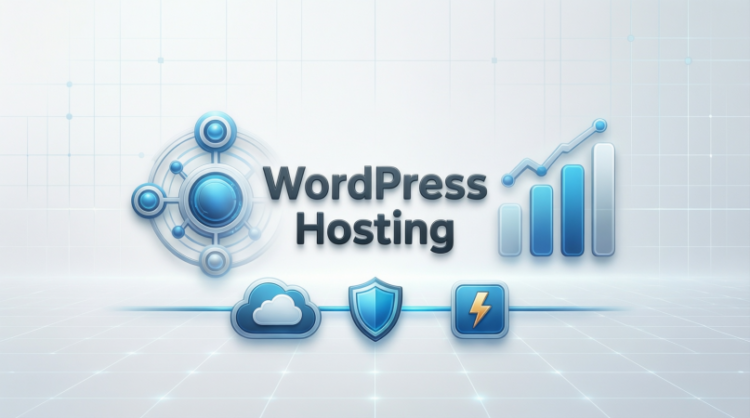
- Effective Strategies for Growing Your Business
- 1. Understanding Your Target Market
- 2. Building a Strong Brand Identity
- 3. Developing a Comprehensive Marketing Plan
- 4. Establishing a Strong Online Presence
- 5. Prioritizing Customer Service and Experience
- 6. Investing in Employee Growth and Development
- 7. Tracking and Analyzing Key Performance Metrics
- 8. Expanding Your Reach through Strategic Partnerships and Collaborations
- FAQs
- Q: What if I’m just starting out and don’t have a lot of resources to invest in these strategies?
- Q: How long does it take to see results from these strategies?
- Q: What if I don’t have any experience with data analytics or measuring KPIs?
- Q: Can these strategies be applied to any type of business or industry?
Effective Strategies for Growing Your Business. Starting and growing a successful business can be challenging, but it is also one of the most rewarding experiences one can have in their lifetime. However, many entrepreneurs struggle to gain traction and grow their business due to a lack of effective strategies and planning. In this article, we will discuss some of the most effective and proven strategies for growing your business.
From understanding your target market to expanding your reach through strategic partnerships, these strategies will provide you with the knowledge and tools you need to take your business to the next level. Whether you’re a small business owner just starting out or an established entrepreneur looking to scale your business, these strategies will help you achieve your growth goals and create a successful and sustainable business.
Effective Strategies for Growing Your Business
Growing a business is no easy feat. It takes dedication, perseverance, and a sound strategy to succeed. If you’re looking to take your business to the next level, there are several effective strategies you can implement to help you achieve your goals. Here are eight strategies that can help you grow your business:
1. Understanding Your Target Market
Before you can effectively market your business, you need to understand your target audience. Conducting market research can help you identify your customers’ needs, preferences, pain points, and buying habits. Analyzing your competitors can also help you gain insights into their strategies and tactics, giving you a competitive advantage.
2. Building a Strong Brand Identity
Building a strong brand identity is crucial for establishing credibility and recognition in the marketplace. Defining your unique value proposition, creating a memorable brand name and logo, and establishing brand guidelines and standards can help you differentiate your brand from competitors and create brand loyalty.
3. Developing a Comprehensive Marketing Plan
A comprehensive marketing plan sets clear and measurable objectives, defines your target audience segments, and determines the most effective marketing channels to reach your customers. By understanding your customers’ needs and preferences, you can create a marketing plan that resonates with them and drives meaningful engagement.
4. Establishing a Strong Online Presence
In today’s digital age, having a strong online presence is essential for businesses. Building a user-friendly and mobile-optimized website, optimizing for search engine ranking and visibility, and leveraging social media platforms for brand awareness can help you reach a wider audience and drive traffic to your website.
5. Prioritizing Customer Service and Experience
Providing exceptional customer service and experience is crucial for building brand loyalty and retaining customers. Prompt and professional customer support, personalized and customizable services, and consistent and high-quality experiences can help you create a positive reputation and increase customer satisfaction.
6. Investing in Employee Growth and Development
Investing in your employees’ growth and development can help you retain top talent, boost productivity, and drive innovation. Providing training and education opportunities, encouraging collaboration and feedback, and establishing a positive and supportive work culture can help you build a strong and motivated team.
7. Tracking and Analyzing Key Performance Metrics
Tracking and analyzing key performance metrics can help you measure the effectiveness of your strategies and make informed decisions. Setting up a comprehensive data analytics system, measuring key performance indicators (KPIs), and analyzing and interpreting data can help you identify areas for improvement and optimize your business operations.
8. Expanding Your Reach through Strategic Partnerships and Collaborations
By partnering with other businesses, you can expand your reach and gain access to new customers and markets. Identifying potential partnerships and collaborations, establishing clear and mutually beneficial goals, and leveraging partner and collaborator networks can help you drive growth and achieve your business objectives.
In conclusion, growing a business takes time, effort, and a solid strategy. By implementing these eight strategies, you can increase your chances of success and achieve your business goals.By implementing these effective strategies for growing your business, you will be able to achieve sustainable growth and success. Remember, building a business takes time, effort, and dedication, but with the right strategies, you can position yourself for long-term success. Take the time to understand your target market, build a strong brand identity, prioritize customer service and experience, invest in your employees, track and analyze key performance metrics, and expand your reach through strategic partnerships and collaborations. By doing so, you will be well on your way to achieving your growth goals and creating a successful and thriving business.
FAQs
Q: What if I’m just starting out and don’t have a lot of resources to invest in these strategies?
A: These strategies can be tailored to fit any budget or level of experience. Even if you’re just starting out, you can still conduct market research, build a strong brand identity, and prioritize customer service without breaking the bank. The key is to focus on what’s most important for your business and prioritize your resources accordingly.
Q: How long does it take to see results from these strategies?
A: The timeline for seeing results will vary depending on the specific strategy and the nature of your business. Some strategies, such as building a strong brand identity, may take longer to see results, while others, such as optimizing your website for search engines, can yield quicker results. It’s important to be patient and persistent, and to track and analyze your progress along the way.
Q: What if I don’t have any experience with data analytics or measuring KPIs?
A: While data analytics can be complex, there are many resources and tools available to help you get started. You can start by identifying the key performance metrics for your business and setting up a simple data tracking system. From there, you can gradually build your skills and knowledge over time.
Q: Can these strategies be applied to any type of business or industry?
A: Yes, these strategies are applicable to businesses of all types and industries. While the specific tactics and approaches may vary depending on the nature of your business, the underlying principles and strategies remain the same. By understanding your target market, building a strong brand identity, prioritizing customer service and experience, investing in your employees, tracking and analyzing key performance metrics, and expanding your reach through strategic partnerships, you can position your business for long-term growth and success.
Read More :





